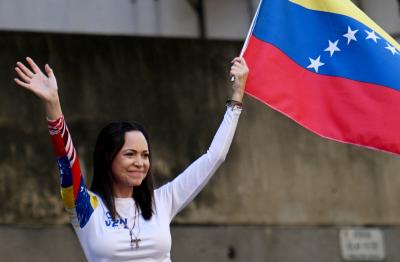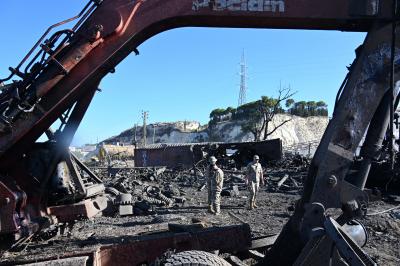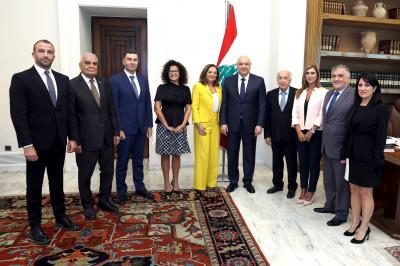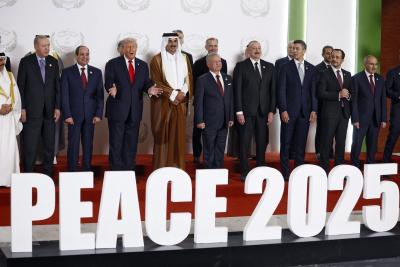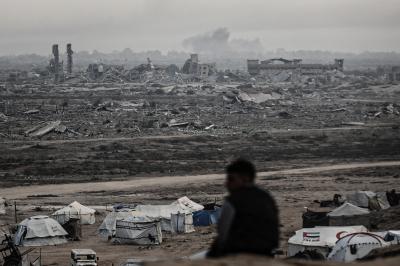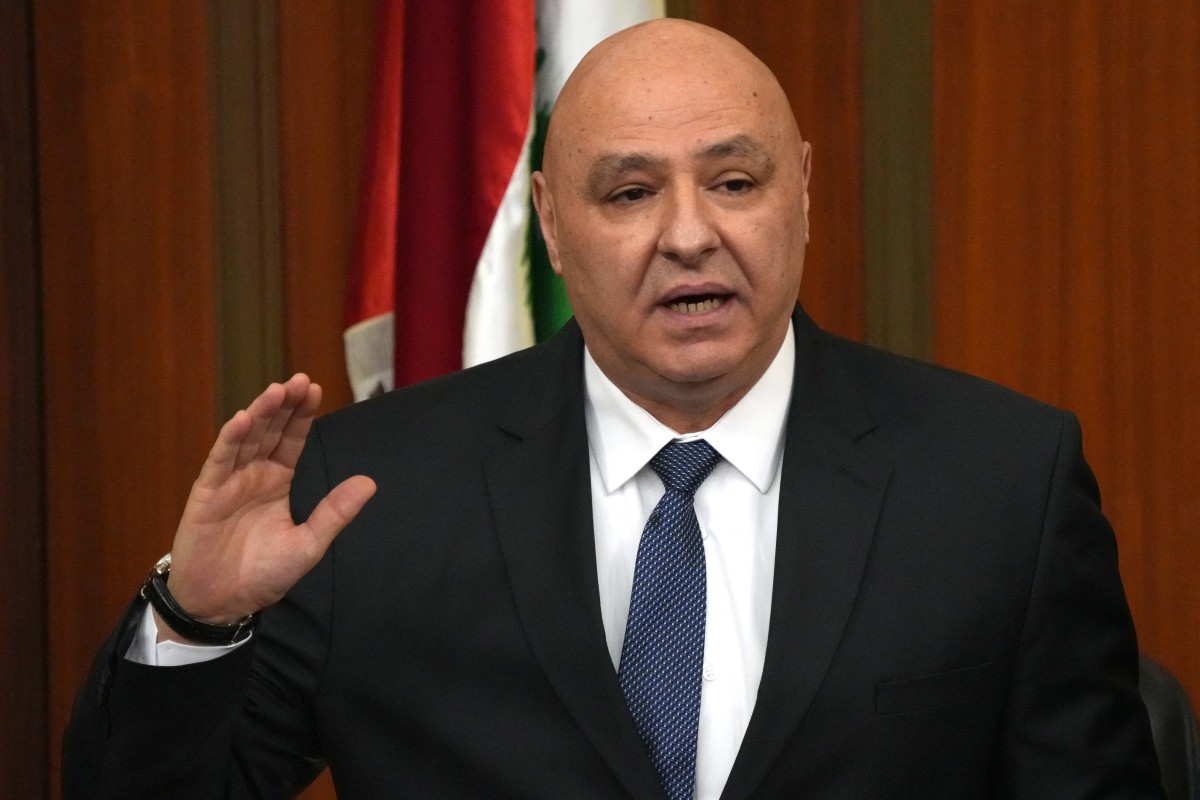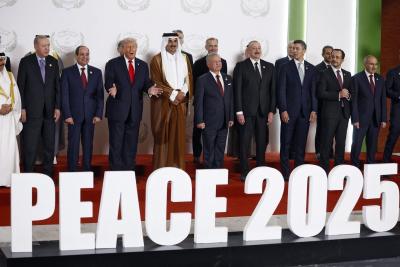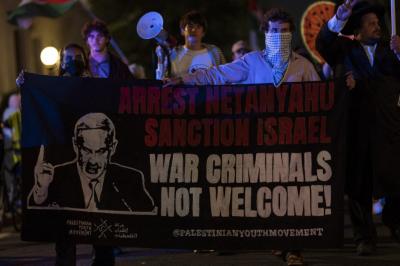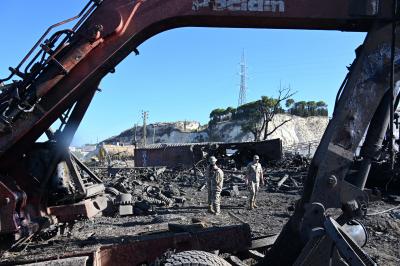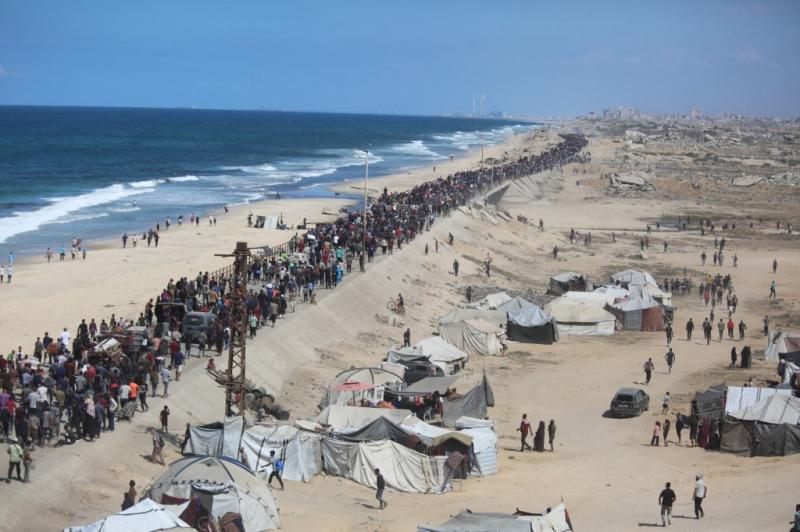No popular proverbs and wisdom have come together as they have in the election of Army Commander General Joseph Aoun as the 14th President of the Lebanese Republic since independence.
Nature, which abhors a vacuum, filled the void after two years, two months, and ten days of the presidential seat remaining vacant, following the end of former President Michel Aoun's term on October 31, 2022. Since this is not the first vacancy in the history of the Lebanese Republic, it has become imperative for the Lebanese to address this recurring issue moving forward.
Before the Taif Agreement, there were two instances of presidential voids. The first occurred with the resignation of President Bechara El Khoury, whose term had been extended in 1952. In response, Army Commander General Fouad Chehab was tasked with leading a transitional government that oversaw the election of President Camille Chamoun.
The second took place at the end of President Amine Gemayel's term in 1988. At the eleventh hour, Army Commander General Michel Aoun was appointed as a transitional head of the government made up of the six military council members with the task of organizing a presidential election. Due to the deep divisions in the country at the time and Syria's control over a large part of Lebanon, three ministers "withdrew" from the military government, and Prime Minister Salim Hoss's government refused to recognize the decree appointing General Aoun. This led to the existence of two governments in Lebanon.
After the Taif Agreement was ratified and enshrined into Lebanon’s constitution, the republic experienced two additional periods of presidential vacancy. The first occurred at the end of President Émile Lahoud's extended term in 2007, lasting six months and culminating in the election of Army Commander General Michel Sleiman. This election was the result of a "mini-Taif agreement" conference held in Doha, following the events of May 7, when Hezbollah launched a military campaign in parts of Beirut and Mount Lebanon in response to a government decision to disable its communication network.
The second vacancy came at the end of President Sleiman’s term in 2014, stretching for over two years until the election of General Michel Aoun, at the time leader of the Free Patriotic Movement.
Yesterday, nature abhorred the vacuum once again, and the legal adage “the end justifies the means” came into play. According to constitutional norms, electing a G-1 (highest grade) civil servant as president requires their resignation two years before the election. This was the case of President Sleiman as it was yesterday that of President Joseph Aoun.
However, with no sitting president to sign constitutional amendments and only a caretaker cabinet, a legal workaround emerged. Former minister and lawyer Bahij Tabbara proposed a legal jurisprudence: if the candidate secures 86 votes—two-thirds of parliament—the election would serve as an implicit constitutional amendment. This approach avoids any potential challenges to the election’s legality before the Constitutional Council.
Amid the dramatic scene at the electoral session in Beirut on Thursday, January 9, and fears that the session might be postponed due to the deep divisions among political factions, which had left the country without a president for two years, two months, and ten days after 12 failed sessions, the adage “might makes right” came into play.
What local players failed to achieve, international actors managed to accomplish—particularly the Quintet composed of the United States, France, Egypt, Saudi Arabia, and Qatar.
Although tensions existed within the committee itself, as well as between some of its members and Iran head of the “resistance axis,” circumstances aligned after Israel’s war on Lebanon, coinciding with the "Al-Aqsa Flood" war in Gaza. The war devastated cities and villages in the south, the Bekaa Valley, and Beirut’s southern suburbs, significantly weakening Hezbollah’s military power. This led to a ceasefire agreement that required Hezbollah to withdraw north of the Litani River and hand over all its weapons to the Lebanese authorities, in line with UN Resolution 1701.
The situation further shifted with the fall of Syrian President Bashar al-Assad’s regime, which diminished Iran’s influence on Lebanese affairs.
The Quint Committee applied pressure—some members wielding diplomatic carrots and sticks, others allegedly offering incentives to MPs or tying the election of General Joseph Aoun to promises of helping Lebanon overcome its crises. Ultimately, the strongest argument prevailed, overshadowing the inability of local factions to agree on a consensus candidate or engage in a democratic competition.
However, the fear remains that the saying “he who gives, commands” might now apply to Lebanon under the emerging “American era,” reminiscent of the Pax Romana of the Roman Empire. As the region undergoes anticipated transformations and discussions of a new Middle East gain momentum, one should not be surprised if Lebanon is pushed toward peace deals or settlements with Israel. In retrospect, the 1983 May 17 Agreement between Lebanon and Israel, forged after the 1982 invasion, might appear less damaging than the security arrangements expected in the south if Lebanon adheres to the ceasefire agreement and implements UNSC Resolution 1701.
General Joseph Aoun was elected president with 99 votes and delivered his oath of office. As is customary with every inaugural speech, the proverb “It sounds great if only it could come true” emerges. The challenge in keeping the promises of the speech does not stem from the president, his intentions, abilities, or willpower but rather from Lebanon’s deeply flawed system. The country’s political structure is riddled with narrow partisan, sectarian, and even personal interests that often hinder progress.
This is the so-called "deep state" in Lebanon, predating the establishment of Greater Lebanon. It’s a network of historic political families, feudal lords, financial and economic interests, as well as sectarian and regional considerations. This deep state either aligns with the president to facilitate governance or opposes him, obstructing and undermining his term.
The new president’s greatest challenge may be curbing this deep state. Fortunately, international support appears to be on his side, which might help reduce its influence—at least during the early years of his term. As is often the case, however, these years might later give way to political disputes, clashing interests, and preparations for the next presidential election. This would trigger power struggles, political bickering, and a heated game of cat and mouse between those in power and the opposition.
The second major challenge lies in appointing a prime minister, forming the government, and determining its makeup, function, and agenda. This includes drafting its ministerial statement, particularly if the Shiite duo—who played a decisive role in securing the new president's election—insists on enshrining the "right to resistance against occupation" within it. This would add to the mounting political, economic, financial, and social crises, as well as issues of reconstruction and addressing the Palestinian refugee and Syrian displacement problems.
This challenge is closely tied to the handling of Hezbollah’s weapons, which international and regional sponsors of the settlement in Lebanon demand be handed over. They also insist on Hezbollah’s withdrawal north of the Litani River, by the ceasefire agreement. The two-month deadline for implementing this agreement expires in a few days. Should this not occur, Israel is likely to resume its war on Lebanon—if it ever paused it—backed by certain forces among these sponsors, to achieve its objectives.
The era of vacancy is over. A president has been elected. The wheels of state have begun to turn again. Tomorrow, a massive administrative effort will be needed to fill vacancies across the administration. As a prominent Lebanese figure remarked, "May God help the new president," as he now bears the weight of the 99 MPs who elected him, each of whom believes that without their support, he wouldn’t have become president. Let’s hope the proverb rings true: "The strongest soldiers are given the toughest battles."
Please post your comments on:
[email protected]
 Politics
Politics
